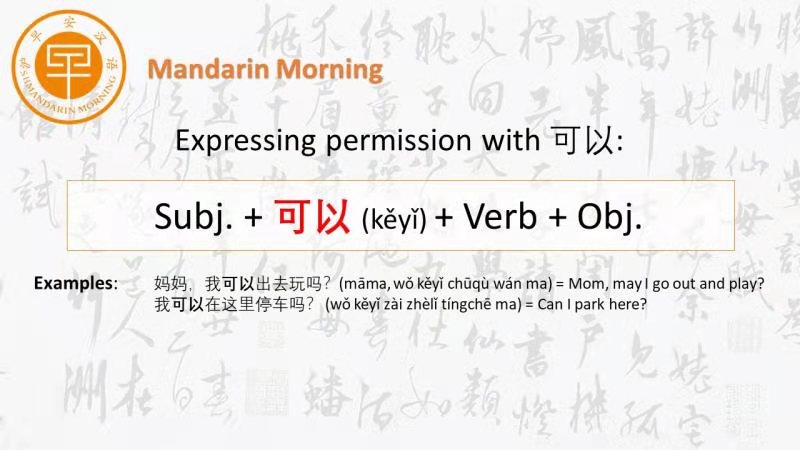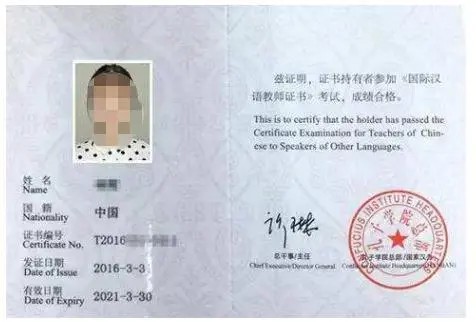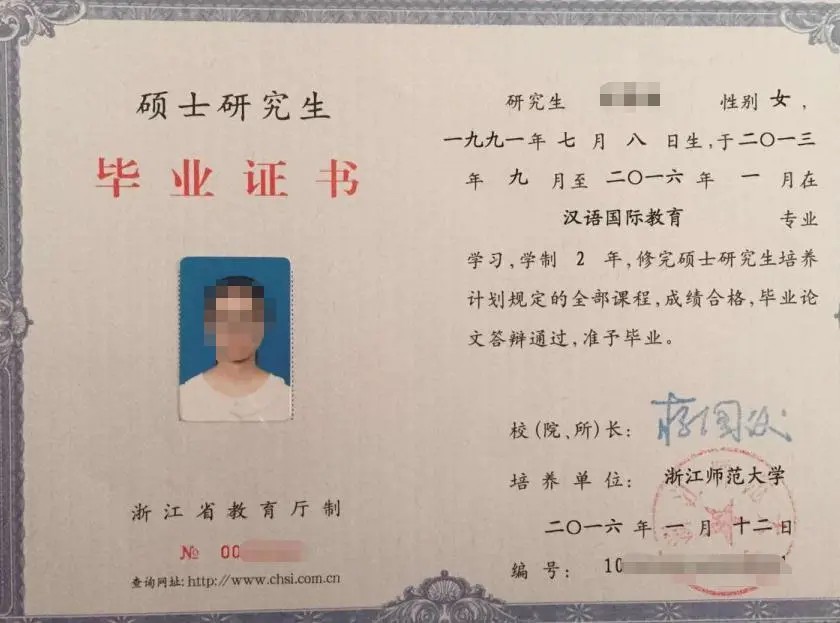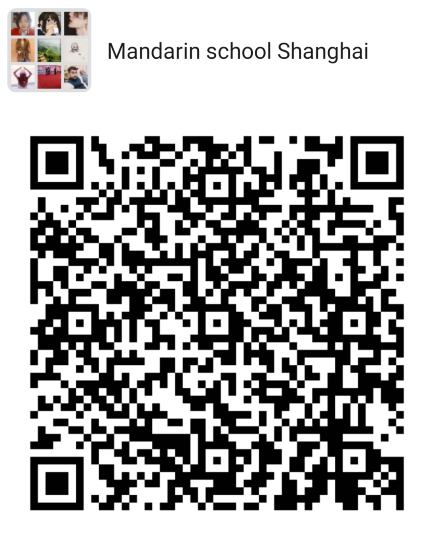可以 (kěyǐ) is an auxiliary verb primarily used for expressing permission. It's often translated as "can," but in order to not get it confused with other words, it's best to think of it as "may" to emphasize the permission aspect. Basic Usage Just put 可以 (kěyǐ) in directly before a verb to create a meaning of "may" (plus the verb). It's the same structure whether it's a statement or a question. Structure: Subj. + 可以 + Verb + Obj. Use this structure to express permission to do things. Examples: 我可以进来吗?(wǒ kěyǐ jìnlái ma) = May I come in? 二十一岁以后可以喝酒。(èrshí-yī suì yǐhòu kěyǐ hējiǔ) = After you are 21 years old, you may drink alcohol. 妈妈,我可以出去玩吗?(māma, wǒ kěyǐ chūqù wán ma) = Mom, may I go out and play? 我们可以在办公室吃饭吗?(wǒmen kěyǐ zài bàngōngshì chīfàn ma) = Can we eat in the office? 我可以在这里停车吗? (wǒ kěyǐ zài zhèlǐ tíngchē ma) = Can I park here? Negating 可以 (kěyǐ) Sentences 可以 (kěyǐ) sentences are negated with 不 (bù), which is inserted before 可以 (kěyǐ). Structure: Subj. + 不 + 可以 + Verb + Obj. Examples: 孩子不可以看这个。(háizi bù kěyǐ kàn zhège) = Children can't watch this. 你现在不可以进去。(nǐ xiànzài bù kěyǐ jìnqù) = You can't go in right now. 这里不可以抽烟。(zhèlǐ bù kěyǐ chōuyān) = You can't smoke here. 我们都不可以去。(wǒmen dōu bù kěyǐ qù) = None of us may go. 你不可以说脏话。(nǐ bù kěyǐ shuō zānghuà) = You can't say swear words. # Our teachers # More than 10 years teaching experience Master Degree Certificate for teaching chinese as a foreign language   # About us # Founded in 2007 Chinese test and training center 200+ Chinese teachers 5000+ students  # Contact us# Name:fiona Phone number:021-52287809,13918358891 E-mail:info@mandarinmorning.com www.mandarinmorning.com If you are interested to join Mandarin Morning school or want more details about our services, scan the following QR code. ☟   Mandarin Morning Chinese test center attached to Confucius institute headquarters Authorized Test Center and Training Center for International Chinese Language Teacher Certificater 10 years+ ,200 teachers ,more 10000 students,200+companies  |